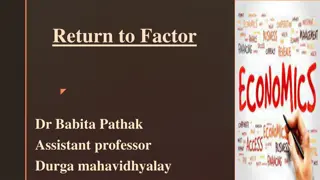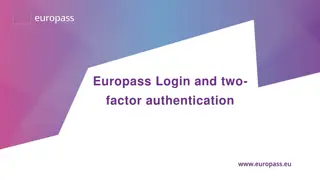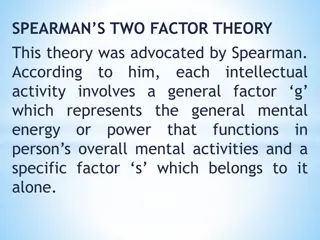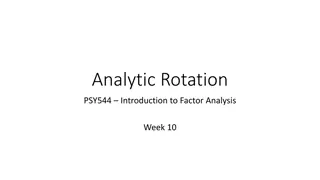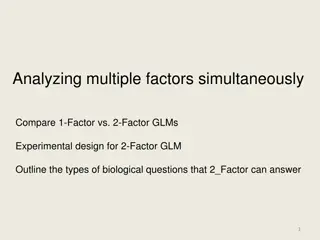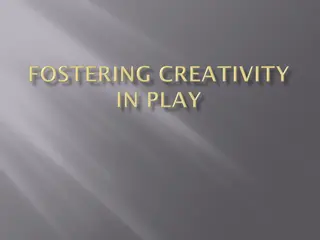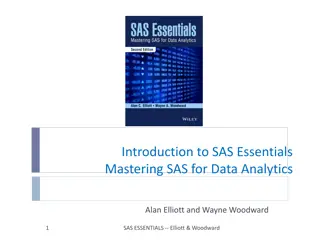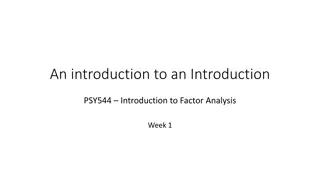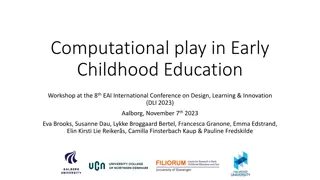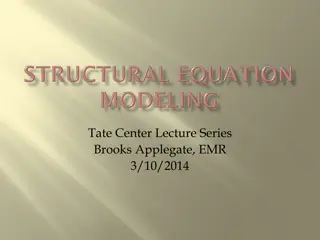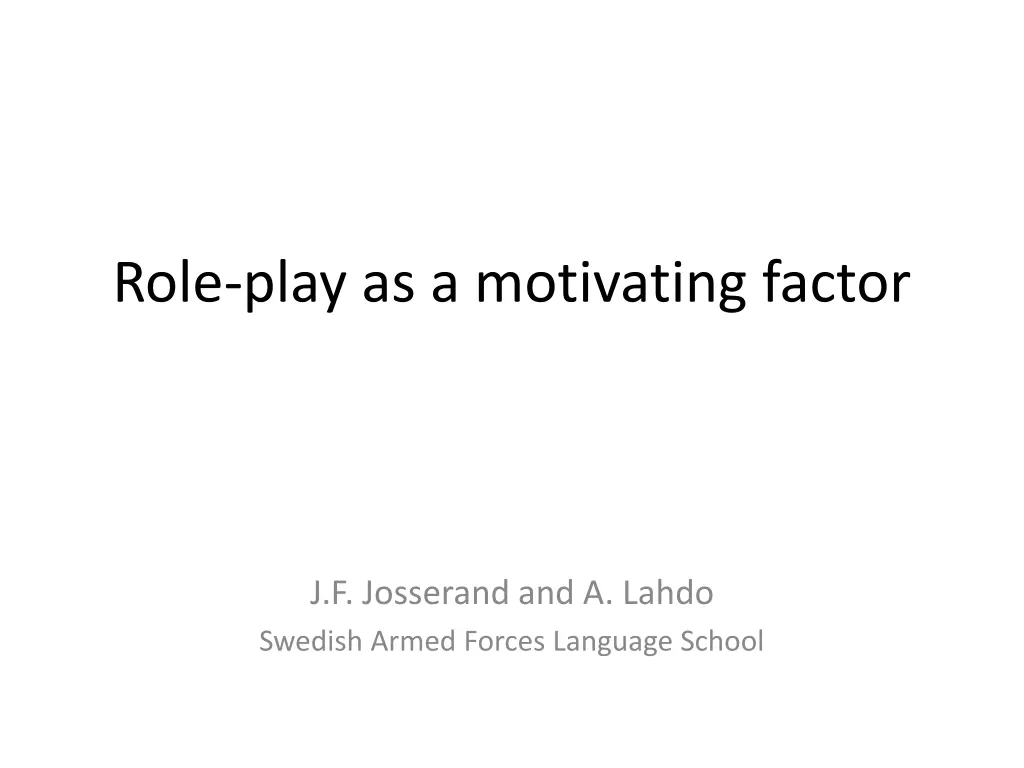
Role-Play as a Motivating Factor in Language Learning
Explore how role-play is utilized as a motivating factor in language education at the Swedish Armed Forces Language School, enhancing cultural understanding and fluency through real-life scenarios and active learning methods.
Download Presentation

Please find below an Image/Link to download the presentation.
The content on the website is provided AS IS for your information and personal use only. It may not be sold, licensed, or shared on other websites without obtaining consent from the author. If you encounter any issues during the download, it is possible that the publisher has removed the file from their server.
You are allowed to download the files provided on this website for personal or commercial use, subject to the condition that they are used lawfully. All files are the property of their respective owners.
The content on the website is provided AS IS for your information and personal use only. It may not be sold, licensed, or shared on other websites without obtaining consent from the author.
E N D
Presentation Transcript
Role-play as a motivating factor J.F. Josserand and A. Lahdo Swedish Armed Forces Language School
Swedish Armed Forces Language School Historical background Russian 1957 Serbo-Croatian 1994 Albanian 1999 Arabic 2006 Dari 2008 French 2014
Teaching methods Russian from 1957 Traditional classroom teaching methods Theoretical grammar Reading and writing Language lab Pronunciation Conversation Written exams Focus on military terminology
From 2006 New aspects in training military interpreters Cultural understanding and cultural awareness Immersion trips to different regions The use of role-play
Why role-play? Role-play activities range from highly controlled guided conversations at one end of the scale, to improvised drama activities at the other; from simple rehearsed dialogue performance, to highly complex simulated scenarios Role-play opens a path for practicing and producing speech early in the learning process Reproduction of a real situation in a simplified but accurate way
Active Method = New Method? Rabelais, Gargantua, 1534 Rousseau, mile ou de l ducation, 1762 School vs College Teaching by discussing Team work Case Method Role-play
Role-play Learning by acting Script or/and improvisation Testing the accuracy in both languages Testing the fluency in the target language Procedure and exploration Culture (Interpreting)
Different forms of role-play Discussions after given roles Debates (between two groups) Open conversation (a student and an actor) Simulation of situations Observe and report (via radio) Language and culture
Evaluation Feed-back Recording Doing the script again in the language lab
Limitations Temporal and spatial Number of participants, but Actors Setup
Motivation-student perspective By acting one lives in the role of someone else Contents of texts become coherent and reachable Imaginable situations become more realistic Role-play takes you out of the classroom Role-play is like playing which is fun Appreciated to move around instead of sitting all day Fluency Accuracy
Motivation teacher perspective Fluency Accuracy Creativity More active and involved Being bold / Personal limitations Students dare to try new constructions in sentences Implement new vocabulary in speaking A good way to check individual development Product
Bibliography Albert-Fedolak, E. (2016) , Jeu de r le : un levier p dagogique pour l apprentissage de la communication et la socialisation en classe de langue vivante h t rog ne . Education. Brisson, L. & Karmann, M. (2017), Le jeu de r le dans l enseignement sup rieur pour d velopper l autonomie et la motivation des tudiants, IXeColloque des Questions de P dagogie dans l Enseignement Sup rieur, Grenoble, 13 , 14, 15 et 16 Juin 2017. Chamberland, G., Lavoie, L. et Marquis, D. (2000), 20 formules p dagogiques, Sainte-foy : Les Presses de L'Universit du Qu bec. 151-154 Geske, J. (1992), Overcoming the drawbacks of the large lecture class. College teaching, 40 Girard. G., Clavet D. et Boul , R. (2005), Planifier et animer un jeu de r le profitable pour l apprentissage, P dagogie M dicale 6: 3, 178-185 Hertel, J.P. et Millis, B.J. (2002), Using simulations to promote learning in higher education : an introduction. Sterling, Va. : Stylus Publishers. Ku nierek, Anna. 2015. Developing students speaking skills though role-play. World Scientific News. 73-111. Olibet, I. (2015). Le jeu de r le : un outil p dagogique pour l enseignement du droit dans la fili re STMG, Education.. Romainville, M. (2007), Un exemple de m thode active : le jeu de r le. Service de P dagogie Universitaire, RESEAU 64, pp 3-7.








